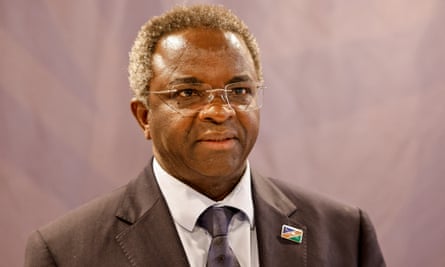Namibia has elected its first female leader, with Netumbo Nandi-Ndaitwah declared the winner of last week’s presidential election in a result that will extend the ruling Swapo party’s 34-year hold on power.
Nandi-Ndaitwah, the current vice-president, won with 57% of the vote, according to official results, defying predictions that she might be forced into a runoff. Swapo has ruled the country since its independence from apartheid South Africa in 1990.
“The Namibian nation has voted for peace and stability,” Nandi-Ndaitwah, 72, said after the final results were announced late on Tuesday.
Nandi-Ndaitwah was a member of the underground independence movement in Namibia in the 1970s. She was promoted from foreign minister to vice-president in February, after president Hage Geingob died while in office.
Opposition parties have rejected the results after the election was marred by technical problems, including shortages of ballot papers and other issues, causing election officials to extend voting until Saturday. The opposition parties claim the extension was illegal and intend to challenge the results in court.

Panduleni Itula, 67, who practised as a dentist in Whitley Bay near Newcastle before returning to Namibia in 2013, came second with 25.5% of the vote, below the 29% share he secured in 2019.
Nandi-Ndaitwah also outperformed her party, which received 53% of the parliamentary vote, down from 65% five years ago. Itula’s new Independent Patriots for Change (IPC) party also came second, with 20% of the vote.
She was widely viewed as a steady hand, a seasoned diplomat not tainted by the corruption scandals that had engulfed some other members of Swapo.
Her triumph also means that Namibia bucks a trend of incumbent liberation movements being punished by restive younger voters in southern Africa.
This year, South Africa’s African National Congress lost its parliamentary majority for the first time since apartheid ended, the party that had ruled Botswana since independence from Britain in 1966 was booted from office and Mozambique has been hit by protests for almost two months since an allegedly rigged election.
Source: theguardian.com


